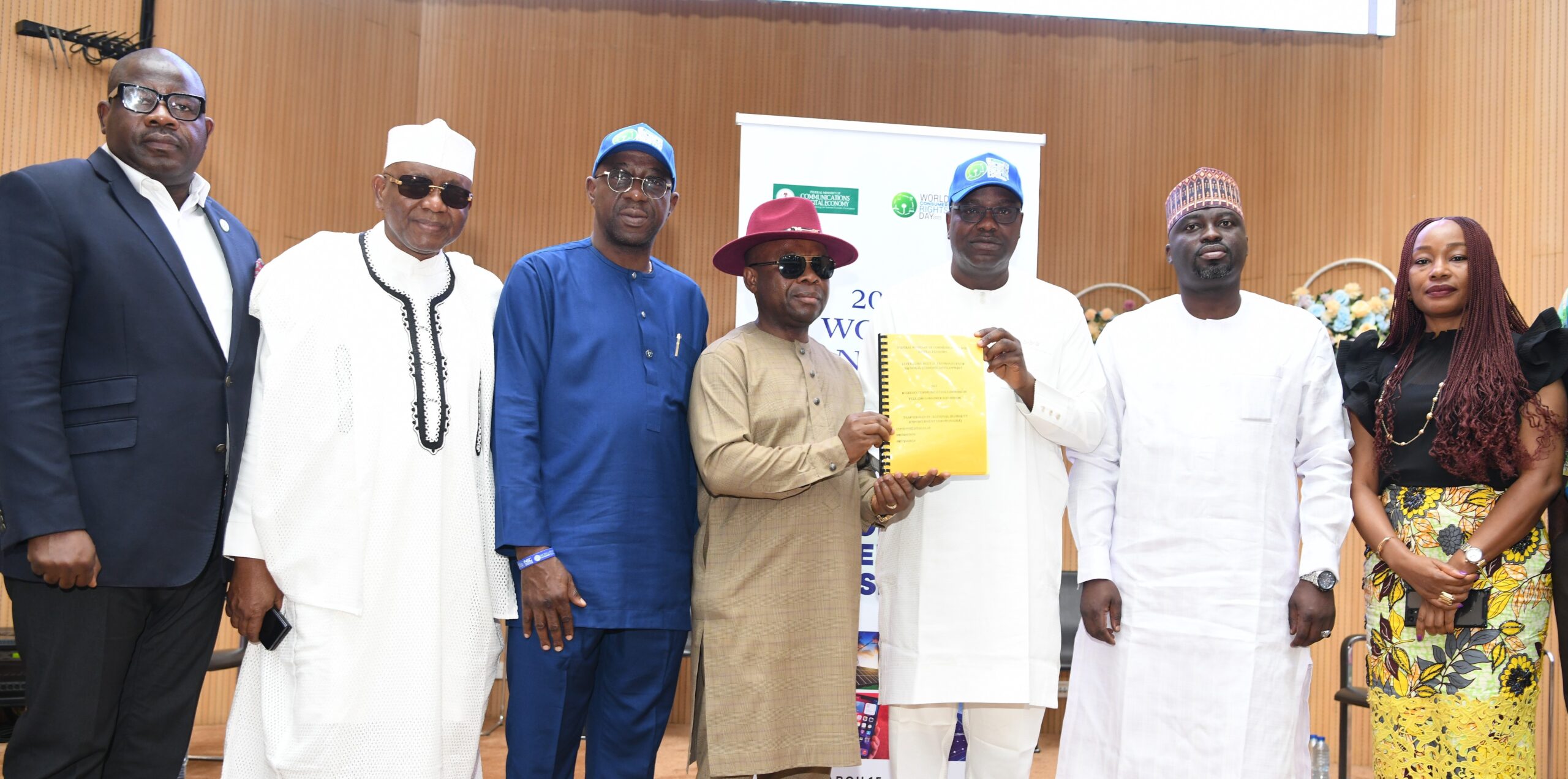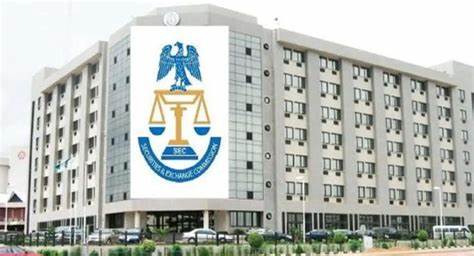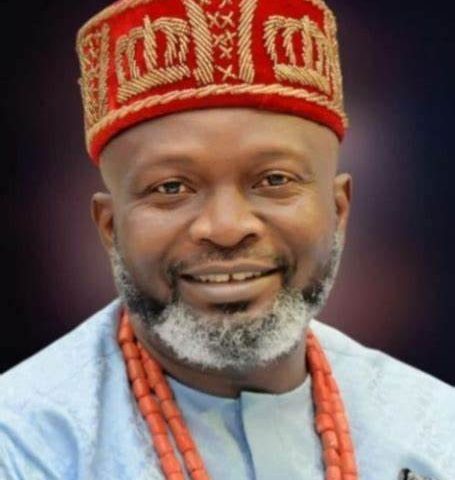Amid global concerns on climate change, the Nigerian Communications Commission (NCC) has charged MTN, GLO, Airtel, 9Mobile and other mobile network operators to come up with innovations in sustainable energy while deploying their network infrastructure.
Executive Vice Chairman, NCC, Prof Umar Garba Danbatta, while speaking at the 2023 World Consumer Rights Day, event held in Abuja on Wednesday, urged telecom network providers to invest in modern, more energy-efficient and environment-friendly network infrastructure.
READ ALSO: NCC Approves Harmonized Short Codes, Directs Implementation
Wednesday, 15th March was World Consumer Rights Day with the theme “Empowering Consumers through Clean Energy Transition.”
Prof Danbatta said that the theme is “geared towards delivering a smooth transition for consumers experiencing a high cost of living as the globe responds to the ongoing energy crisis caused by supply and climate issues.”
According to him, the theme of the 2023 World Consumer Rights Day aligns with Nigeria’s recent licensing of the 5G Spectrum networks, which consumes twice as much energy as 4G; hence, the need for a transition to a more energy-efficient system.
Due to prevailing energy challenges in Nigeria like electricity failure, all the telecommunications infrastructure, like Base Transceiver Stations (BTS), rely on diesel-powered generators which run 24 hours, thereby contributing to environmental pollution.
The NCC Executive Vice Chairman said the adoption of the 5G Spectrum will trigger high demand for data services which will in turn result in increased energy consumption for the network infrastructure.
“With the recent licensing of the Fifth Generation (5G) spectrum, Nigeria will witness an increased deployment of telecom infrastructure to satisfy the wireless service coverage requirement for 5G services. This anticipated growth in the number of 5G coverage will trigger high demand for data services which will result in increased energy consumption for the network infrastructure especially the Base Transceiver Stations (BTS), Internet of Things (IoT), 5G Customer Premise Equipment (CPEs) and mobile devices for example.
“This requires the industry to look for green and sustainable power solutions required for the connectivity of IoT devices and network optimisation.
“All over the globe, telecom companies are among the biggest energy users, as a result of the stiff industry competition which causes them to try to satisfy their consumers by providing higher-speed networks,” Danbatta said.
He said that transitioning to cleaner and more energy-efficient options, is predicted to result in a lower cost of operation as operators will be able to save on the cost of diesel, which accounts for a large chunk of the costs incurred by telcos.
Danbatta’s Argument:
“With the rising utility costs, it is critical for companies to reconsider the sustainability of their operations by lowering the operational impact on the environment. This is more so because it has been found that implementing energy efficiency measures could potentially reduce the operating costs of telcos by up to 20%.
On energy-efficiency measures that can be adopted, the NCC boss suggested the redesigning of the Radio Access Networks (RAN) of Base Stations which he said: “were initially built to maximise connectivity, not energy efficiency.”
“More than 75% of the time, the radio base station resources remain unused because of the hardware components activated at all times to transmit system information and synchronisation and reference signals. Therefore, to avoid waste heat, some of 5G’s newest RAN is equipped with an energy-saving measure allowing for the automatic switching of components.”
He also suggested the adoption of renewable energy sources (hydrogen, wind, solar etc.) as another energy-efficiency measure, to supply the energy needed.
He further noted that the Commission has been proactive in responding to the realities and challenges posed by the impact of using fossil fuel as a power source in the telecommunications industry. However, the situation in Nigeria is peculiar.
“Owing to the overall energy challenges of the nation, the fifty-four (54) thousand BTS scattered across the country depend on diesel generators with the attendant noise and environmental pollution. Some of these BTS operate on diesel generators for 24 hours across seven days of the week in some locations.
“Therefore, transitioning to a renewable energy source like solar power will significantly reduce the menace of pollution from individually-powered generators. This will be zero carbon emission from the BTS just as noise pollution would be a thing of the past.”
How MNOs Can Embrace More Efficiency:
On how the MNOs can key into the adoption of modern and more energy-efficient networks Danbatta said they could invest in the use of “Solar-powered Cells, wireless electricity or a hybrid system to replace higher energy-consuming equipment that will lead to a reduction in capital expenditure (CAPEX) and operational expenditure (OPEX) and by implication, a reduction in service costs to consumers.”
He called on MNOs and Original Equipment Manufacturers (OEMs) to come up with innovations in sustainable energy in line with the International Telecommunications Union (ITU) “Recommendation ITU-T L.1380 on smart energy solutions for telecom sites’ performance, safety, energy efficiency and environmental impact.”
“This is vital to address the challenges of climate change and environmental degradation,” he added.
The NCC EVC said the Commission is working on a policy to encourage the adoption of renewable energy sources by telecom operators for the benefit of consumers.
“When operational, the Policy will ensure that using clean energy sources for power has the potential to resolve the three key needs of the telecom industry, namely: reduction in diesel usage; expansion of telecom infrastructure to off-grid areas; and reduction in carbon emissions.”
In his opening remarks, the NCC’s Executive Commissioner, Stakeholder Management, Adeleke Adewolu, noted that as consumer volumes and service diversity continue to grow, network operators have to roll out more infrastructure for coverage in new places.
He said that while efforts are made toward network expansion, there is also the need for the adoption of more environment-friendly means of powering telecommunication network infrastructure in order to consciously reduce our carbon footprint while offering cheaper services.
He also noted that the theme of the 2023 WCRD was chosen to “carefully examine the unintended side-effects of our critical social infrastructure on our environment.”
Adewolu expressed optimism that as responsible stakeholders in the telecom sector, practical solutions to questions of having environmentally sustainable network infrastructure and rendering affordable services to consumers would be found.
Victor Ezeja is a passionate journalist with seven years of experience writing on economy, politics and energy. He holds a Master's degree in Mass Communication.





![Breaking: Tinubu Returns To Abuja After Europe Trip [Photos]](https://www.primebusiness.africa/wp-content/uploads/2025/04/Tinubu-returns-to-Abuja-Pohotos-2-720x480.jpeg)













Follow Us